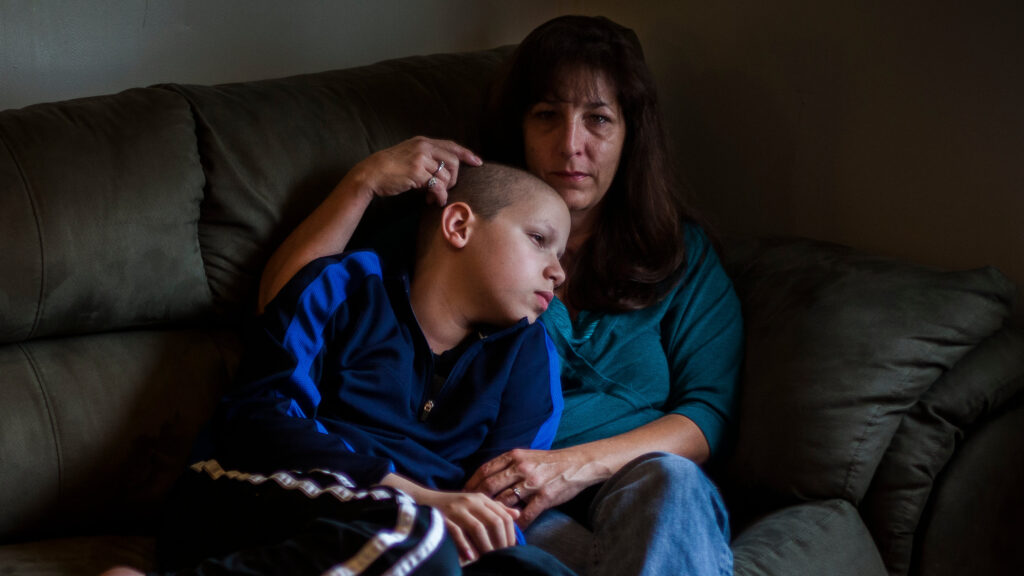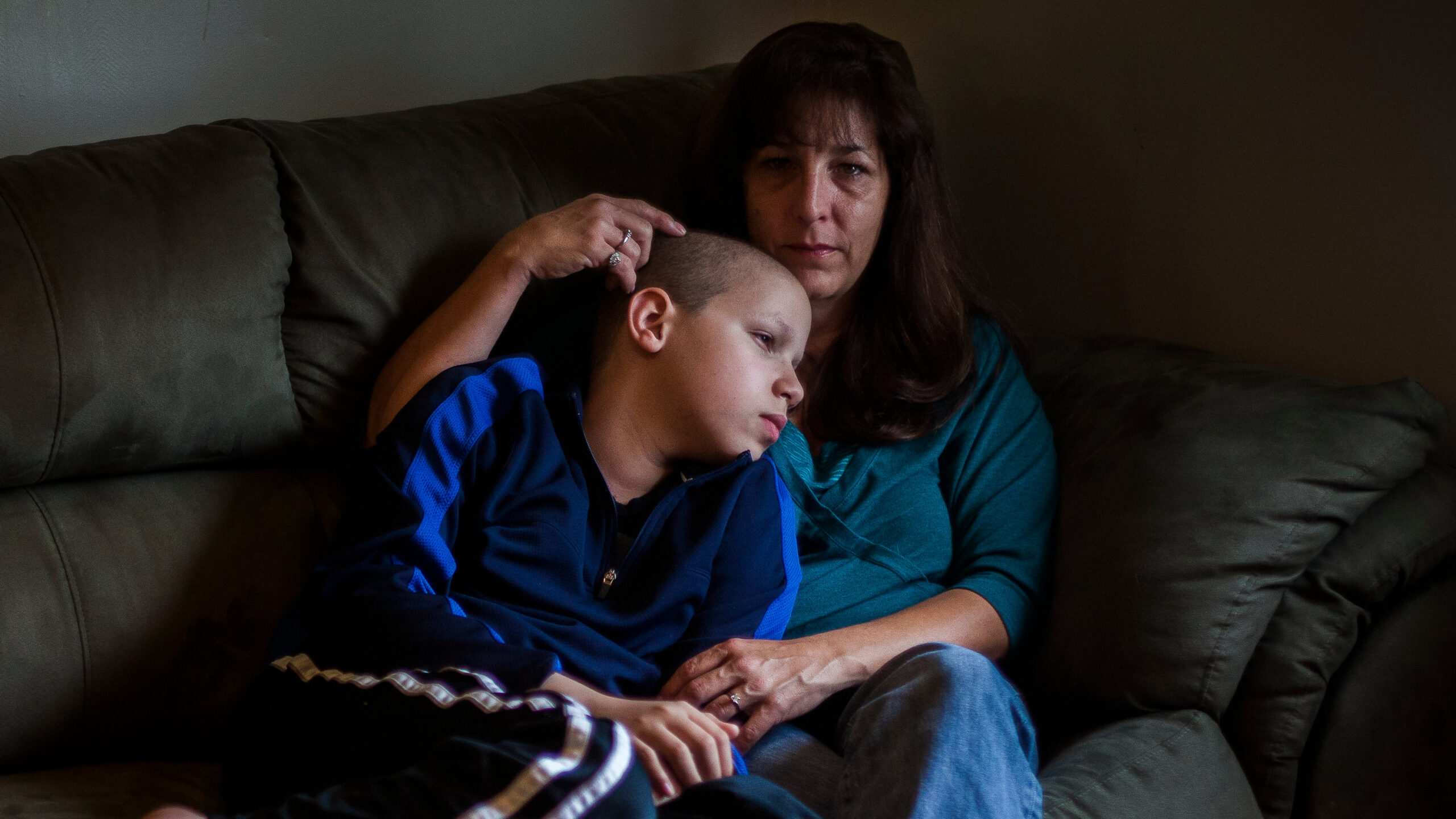
When Mental Illness Strikes Home: Understanding the Impact of a Mentally Ill Son on Family Dynamics
The phrase “mentally ill son destroying family” is a stark and painful reality for some. While the language itself can feel accusatory, it reflects the immense strain and disruption that mental illness within a family can create. This article aims to explore the multifaceted challenges families face when a son struggles with mental health, offering insights into the potential causes, impacts, and coping mechanisms.
Understanding the Landscape of Mental Illness
Mental illness encompasses a wide spectrum of conditions affecting mood, thinking, and behavior. These can range from anxiety and depression to more severe disorders like schizophrenia, bipolar disorder, and personality disorders. It’s crucial to remember that mental illness is a medical condition, not a moral failing or a character flaw. Often, a mentally ill son is not intentionally trying to cause harm, but rather is struggling to cope with symptoms that can profoundly affect their actions and relationships.
Several factors can contribute to the development of mental illness, including:
- Genetics: A family history of mental illness can increase the risk.
- Brain Chemistry: Imbalances in neurotransmitters can play a significant role.
- Environmental Factors: Trauma, abuse, neglect, and significant stressors can trigger or exacerbate mental health conditions.
- Substance Abuse: Drug and alcohol use can both trigger and worsen existing mental illnesses.
The Devastating Impact on Family Life
Living with a mentally ill son can be incredibly challenging for the entire family. The specific impact varies depending on the severity of the illness, the son’s age, and the family’s resources and support system. Common challenges include:
- Emotional Strain: Parents and siblings may experience chronic stress, anxiety, fear, guilt, and grief. They may feel helpless, overwhelmed, and emotionally exhausted.
- Financial Burden: The costs of treatment, therapy, medication, and potential hospitalizations can be substantial. Families may also face lost income if a parent needs to take time off work to care for their son.
- Disrupted Family Dynamics: The illness can disrupt routines, create conflict, and lead to social isolation. Siblings may feel neglected or resentful, and the overall family atmosphere can become tense and unpredictable.
- Safety Concerns: In some cases, a mentally ill son may exhibit aggressive or self-destructive behaviors, posing a threat to themselves or others. This can lead to constant worry and the need for crisis intervention.
- Social Stigma: Families may face judgment and misunderstanding from friends, neighbors, and even other family members, leading to further isolation and shame.
Specific Behavioral Manifestations
The behaviors exhibited by a mentally ill son can vary widely depending on the specific condition and its severity. These may include:
- Mood Swings: Rapid and unpredictable shifts in mood, ranging from extreme highs to deep lows.
- Irritability and Aggression: Increased irritability, outbursts of anger, and even physical aggression.
- Withdrawal and Isolation: Social withdrawal, difficulty connecting with others, and a preference for solitude.
- Delusions and Hallucinations: False beliefs and sensory experiences that are not based in reality.
- Disorganized Thinking: Difficulty concentrating, confused thoughts, and incoherent speech.
- Substance Abuse: Self-medicating with drugs or alcohol to cope with symptoms.
- Self-Harm: Cutting, burning, or other forms of self-inflicted injury.
- Suicidal Thoughts or Attempts: Expressing thoughts of suicide or attempting to take their own life.
Coping Strategies and Support Systems
While dealing with a mentally ill son can be incredibly difficult, it’s not impossible to navigate. Here are some crucial coping strategies and support systems that can help families:
- Seek Professional Help: The first and most important step is to seek professional help from a qualified mental health professional. This may include a psychiatrist, psychologist, therapist, or social worker. A proper diagnosis is essential for developing an effective treatment plan.
- Family Therapy: Family therapy can help family members understand the illness, improve communication, and develop coping mechanisms. It can also address the emotional needs of each family member and help them work together to support the mentally ill son.
- Medication Management: Medication can be an effective way to manage symptoms of mental illness. It’s important to work closely with a psychiatrist to find the right medication and dosage, and to monitor for side effects.
- Support Groups: Joining a support group for families of individuals with mental illness can provide a sense of community and reduce feelings of isolation. These groups offer a safe space to share experiences, learn from others, and receive emotional support. Organizations like the National Alliance on Mental Illness (NAMI) offer a variety of support groups and resources.
- Education and Advocacy: Educating yourself about mental illness can help you better understand your son’s condition and advocate for his needs. There are many reputable resources available online and in libraries.
- Self-Care: It’s essential for family members to prioritize their own self-care. This includes getting enough sleep, eating healthy, exercising regularly, and engaging in activities that bring them joy. Taking care of your own physical and emotional well-being will enable you to better support your son.
- Establish Boundaries: Setting clear and consistent boundaries is crucial for maintaining a healthy family dynamic. This may involve limiting contact when the mentally ill son is exhibiting disruptive or harmful behaviors.
- Crisis Planning: Develop a crisis plan in case of emergencies. This plan should include contact information for mental health professionals, hospitals, and emergency services. It should also outline steps to take if the mentally ill son becomes suicidal or violent.
- Legal and Financial Planning: Depending on the severity of the illness and the son’s age, it may be necessary to consider legal and financial planning. This may involve obtaining guardianship or conservatorship, or setting up a special needs trust.
Navigating the Stigma
One of the biggest challenges families face is the stigma associated with mental illness. This stigma can lead to shame, isolation, and a reluctance to seek help. It’s important to remember that mental illness is a medical condition, not a moral failing. Families should not be ashamed to seek help and support. Openly discussing mental illness can help to reduce stigma and create a more supportive environment for those who are struggling. Fighting the stigma surrounding a mentally ill son requires education and advocacy.
The Importance of Early Intervention
Early intervention is crucial for improving outcomes for individuals with mental illness. The earlier a person receives treatment, the better their chances of recovery. If you suspect that your son may be struggling with a mental health condition, it’s important to seek professional help as soon as possible. [See also: Understanding Early Signs of Mental Illness in Young Adults]
Long-Term Outlook and Hope
While living with a mentally ill son can be challenging, it’s important to maintain hope. With proper treatment and support, many individuals with mental illness can lead fulfilling and productive lives. The journey may be long and difficult, but it’s possible to create a more stable and supportive family environment. Remember to celebrate small victories and focus on progress, not perfection. The key is to never give up on your son and to continue advocating for his well-being. The reality of a mentally ill son doesn’t have to define the family; it can instead be a catalyst for growth, resilience, and a deeper understanding of the complexities of the human condition.
It is important to remember that you are not alone. Many families face similar challenges. By seeking help, educating yourself, and advocating for your son’s needs, you can create a more positive future for your family. The situation of a mentally ill son destroying family can be turned around with dedication and support.
The struggles associated with a mentally ill son are immense, but with the right resources and unwavering support, families can navigate these challenges and find a path toward healing and stability.

